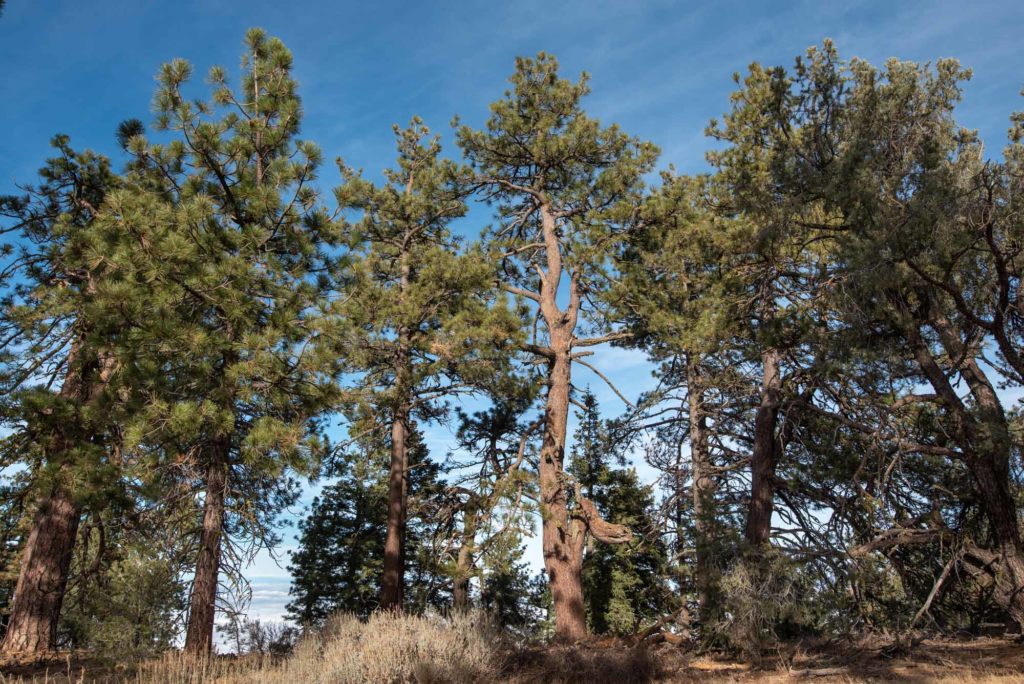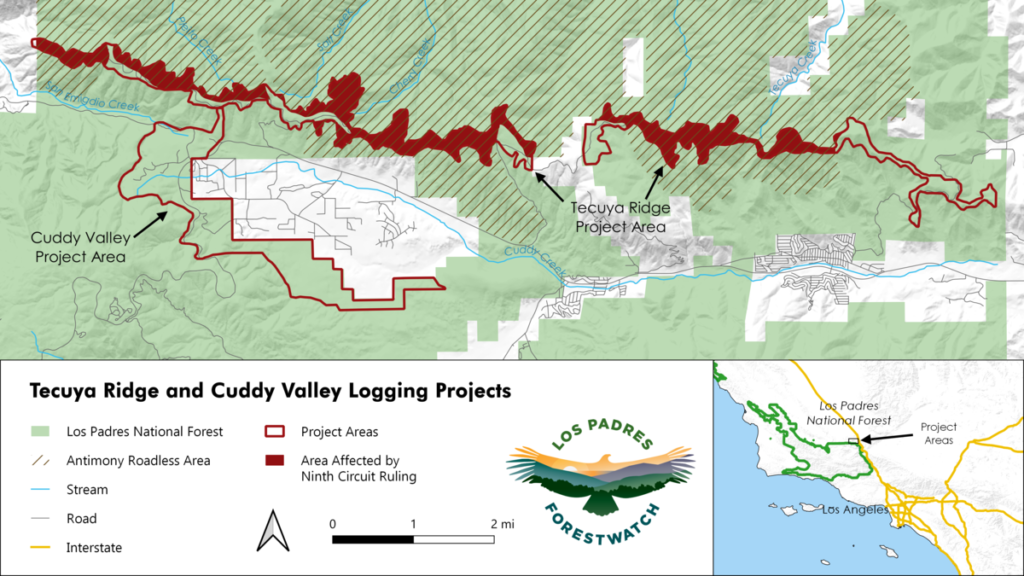
LOS ANGELES, Calif.― A three-judge panel at the Ninth Circuit Court of Appeals ruled in favor of three conservation organizations last week over a commercial logging project in a roadless area of the Los Padres National Forest that is actively used by endangered California condors. The ruling protects 1,100 acres of old-growth forest near the Ventura-Kern county line from large tree cutting.
The panel’s opinion came nearly three years after the Center for Biological Diversity, Los Padres ForestWatch, and John Muir Project first filed a lawsuit—Los Padres ForestWatch et al. v. U.S. Forest Service; U.S. Fish and Wildlife Service—against the project, alleging in part that the Forest Service violated federal law by approving the removal of large-diameter trees along 12 miles of Tecuya Ridge in the Antimony Roadless Area of the San Emigdio Mountains. While a U.S. District Court judge ruled against the conservation organizations in 2020, the Ninth Circuit panel of judges disagreed and vacated the previous ruling, stating that the Forest Service’s determination that the project complies with the federal Roadless Area Conservation Rule was “arbitrary and capricious.”
“This ruling is a big victory for the Antimony Roadless Area, which covers about 68% of the project area, and an even bigger win for the endangered California condors that have been roosting there for the past several years,” said Bryant Baker, conservation director for Los Padres ForestWatch.
The project was contentious from the start, with over 600 public comments submitted during a single 30-day comment period in 2018. Nearly all of the comments were in opposition to the proposed logging and the fact that the Forest Service was using a loophole to avoid preparing an environmental assessment that would normally be required under the National Environmental Policy Act (NEPA). Local community members also submitted a petition with 275 signatures to then forest supervisor Kevin Elliott asking him to withdraw the decision, and hundreds of additional emails from concerned citizens were sent to the agency requesting that the project be canceled.
After the lawsuit was filed, three timber industry groups intervened in the case on behalf of the Forest Service, stating that they “have an economic interest at stake in this case” due to their “direct interests in the economic benefits from the implementation of the Tecuya Project.”
The Forest Service awarded a contract to an Oregon-based company last year to do much of the tree cutting as part of the Tecuya Ridge project, and work was scheduled to begin later this month. The Ninth Circuit’s ruling now sends the case back to the U.S. District Court in Los Angeles for further analysis.
In a separate but related case—Mountain Communities for Fire Safety et al. v. U.S. Forest Service—the same judicial panel ruled last week that a separate but adjacent logging project could move forward, upholding the agency’s approval of a 1,200-acre logging project in Cuddy Valley next to the Tecuya Ridge project. The Forest Service approved the project in 2020 using a loophole designed for timber stand and wildlife habitat enhancement. The Ninth Circuit panel agreed 2-1 with the Forest Service’s arguments that the agency has wide latitude on deciding which projects qualify for the “categorical exclusion” loophole.
However, in a dissenting opinion, Judge Stein disagreed with his two Trump-appointed colleagues’ “novel interpretation” because it “would allow the Forest Service to approve commercial thinning of trees—in other words, to contract with private logging companies to cut and then sell large trees—over a potentially unlimited number of acres.” The dissent criticized the majority’s “cursory analysis” as being inconsistent with Supreme Court precedent, and “contravenes the very purpose of NEPA” to ensure that significant environmental impacts are minimized. Judge Stein’s dissent closes with the following: “By failing to consider the consequences of allowing the Forest Service to evade NEPA’s environmental disclosure requirements for projects involving significant amounts of commercial thinning—projects that are outside the scope of activities CEs are meant to authorize—the majority misses the forest for the trees and does an impermissible disservice to NEPA’s regulatory scheme and the law.”








Comments are closed.